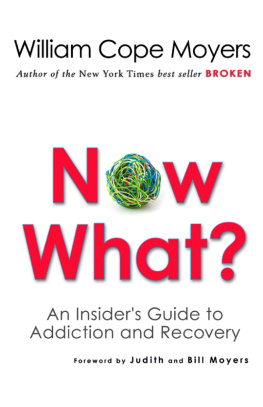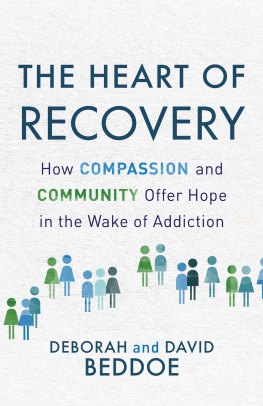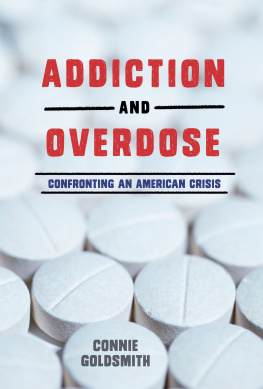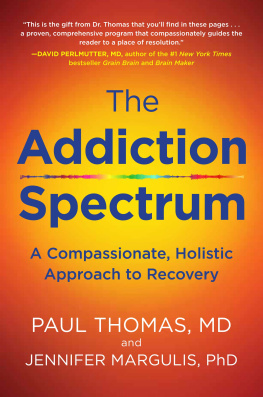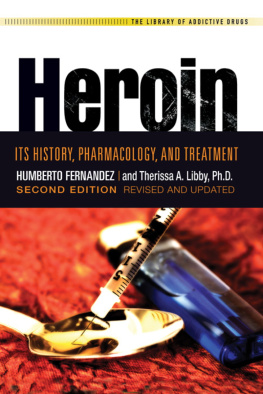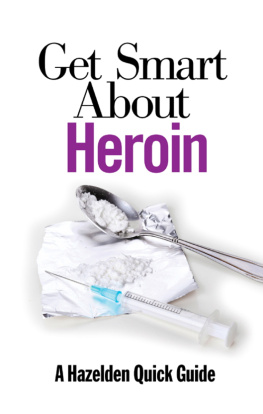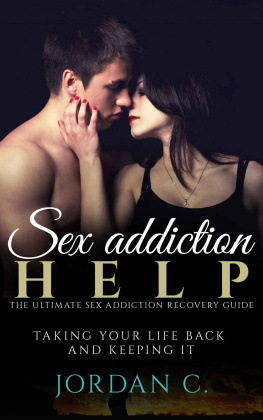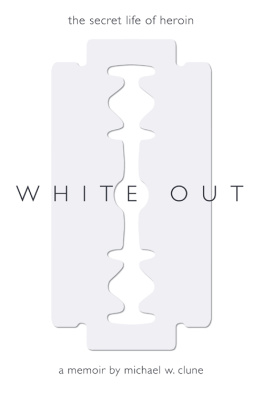Painkillers, Heroin, and the Road to Sanity
Also by Joani Gammill
The Interventionist
PAINKILLERS, HEROIN, AND THE ROAD TO SANITY
Real Solutions for Long-Term Recovery from Opiate Addiction
Joani Gammill

Hazelden Publishing
Center City, Minnesota 55012-0176
800-328-9000
hazelden.org/bookstore
2014 by Joani Gammill
All rights reserved. Published 2014
No part of this publication, either print or electronic, may be reproduced in any form or by any means without the express written permission of the publisher. Failure to comply with these terms may expose you to legal action and damages for copyright infringement.
LIBRARY OF CONGRESS CATALOGING-IN-PUBLICATION DATA
Gammill, Joani, 1957
Painkillers, heroin, and the road to sanity : real solutions for long-term recovery from opiate addiction / Joani Gammill.
pages cm
ISBN 978-1-61649-528-2 (ebook)
1. Opium abuse. 2. Medication abuse. 3. Heroin abuse. 4. Drug abuseTreatment. 5. Drug addictsRehabilitation. I. Title.
RC568.O6G36 2014
616.86'32dc23
2014001285
EDITORS NOTE
To protect the privacy of those mentioned in this publication, names have been changed and, in some cases, other details and circumstances have been changed as well.
This publication is not intended as a substitute for the advice of health care professionals.
Alcoholics Anonymous, AA, and the Big Book are registered trademarks of Alcoholics Anonymous World Services, Inc.
18 17 16 15 14 1 2 3 4 5 6
Cover design by Jon Valk
Interior design by Cathy Spengler
Typesetting by BookMobile Design & Digital Publisher Services
Developmental editor: Sid Farrar
Production editor: Mindy Keskinen
To those people struggling with opiate addiction... and to their loved ones
and to Father Martin, who is always with me
If you want to see a miracle, be a miracle.
Dr. Phil McGraw
Contents
First and foremost, once again, I could not have written this book without my editorial collaborator, Ron Silverman. As with my first book, The Interventionist, he had the uncanny ability to edit my work without changing my voice. This time around, as I juggled many responsibilities while writing this book, Ron kept me on task.
I had a tight deadline, and this book needed a lot of accurate and well-vetted research. I depended heavily on my researcher, David Vermette, who was recommended by my good friend Lee Anderson. Thank you, David, and thank you, Lee, for introducing us.
I also thank my agent, Laura Strachan, who assured me repeatedly I could get this book done in time, Sid Farrar, my editor at Hazelden, who gave me the confidence that I could take on this multifaceted topic, and copy editor Cathy Broberg.
The most constant and supportive witnesses to my efforts were my faithful co-worker and dog, Lucy the Chihuahua, who brings unconditional love to addicts and alcoholics as I do my job as an interventionist, and, much to Lucys displeasure, our new baby, Alex. Alex is a petite chocolate brown labradoodle, my sons autism companion-support dog, generously donated to us by a benefactor. Alex comes from North Star Golden Retrievers, owned by Patty Gross, who tirelessly advocates for people with autism, helping them feel safer and more loved in a world that is not always kind or easy to navigate when one has a developmental disorder. Her loving and intelligent dogs make many kids worlds a better place. Alexs love for Max is endless, and his intelligence never ceases to amaze me (he is smarter than Lucy, but dont tell her I said that!). In the end, though, he is just a puppy that chewed up seven pairs of my sandals as I wrote this book!
My special friend, Ken, helped me with his support and love, not only in his encouragement in writing this book but by helping me navigate a tough year.
My nanny and heart, Stephanie, helped keep the kids and grocery shopping to a manageable level so I could finish this book. Thank you, Steph.
To Dr. Phil McGraw and all the wonderful staff on the Dr. Phil Showin short, you saved my life. And, just as important to me as time goes by, your help changed the very direction of my life and gave me a purpose. Through that purpose you have given me the ability to go on to help others. The Dr. Phil Show has a huge and positive impact for many people. Thank you, Dr. Phil.
To the family of Kalli (not her real name), who you will meet in these pages, thank you for bravely sharing her story with me. I am sorry for your grief this past year. If her journey now has the potential to help others, I hope this gives you some peace.
To all the families who allow me into their lives every week to help them with their loved ones through the process of intervention, thank you for taking the road less traveledalways a more productive path.
Be sober, be vigilant; because your adversary the devil walks about like a roaring lion, seeking whom he may devour. 1 Peter 5:8
That passage from the New Testament warns about the dangers all people face in life, but to us addicts it has a special meaning. It speaks directly to our struggles with addiction, a disorder that stalks us all of our livesthreatening our health, our relationships, and our sanityuntil we get the help we need to build a stable recovery lifestyle. Today, addiction to mood-altering substances is recognized by the medical community as a brain disorder, one that is widespread. With treatment and/or a peer support program, addicts can have moments, months, and years of reprieve, but like all other chronic, lifelong diseases, active addiction can flare up again and require further help to get well. When such flare-ups occur, we call it a relapse. I hate the word relapse. It conjures up failure, which as youre about to learn, doesnt have to be the case.
This book will focus on opiates, a class of drug that is plaguing our country and destroying lives in record numbers. You may have heard the term opioids, too. Whats the difference? Opiates are naturally derived from the opium poppy; opioids are synthetic, or perhaps semi-syntheticbut they work in similar ways. This book uses both terms. But, because of the similar addictive potential, the term opiates is sometimes used more broadly, referring both to opium-derived heroin and to synthetic prescription painkillers such as oxycodone (OxyContin) and hydrocodone (Vicodin).
According to the federally funded 2011 National Survey on Drug Use and Health, about two million Americans are dependent on heroin or prescription painkillers.
Next page

